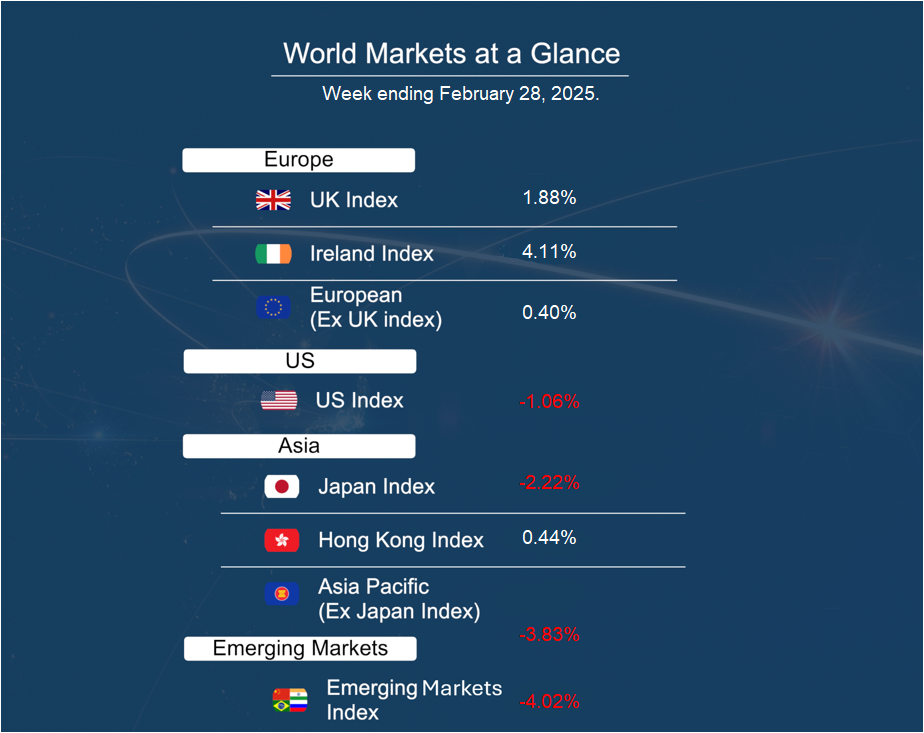Markets have been relatively calm amidst Trump’s tariff proposals, but growing uncertainty around trade negotiations is now weighing on investor confidence. Trump’s unpredictable approach, balancing negotiation tactics and policy, has made it hard for the market to find clear direction. With Trump directing his team to explore “reciprocal” tariffs for each country, volatility is expected to continue as investors adopt a “wait and see” approach. Short-term fluctuations may persist, but pullbacks could present buying opportunities for long-term investors.
In the US, Friday’s release of January’s core PCE inflation report met expectations, providing reassurance about inflation’s trajectory. Annual personal consumption growth eased to 2.5%, down from 2.6% in December, while core inflation slowed to 2.6%, from 2.9%. Personal income saw a significant 0.9% month-over-month increase, its largest rise in a year. However, personal spending dropped by 0.2%, marking the first decline in nearly two years. The softer consumer spending and slower income growth are likely to capture the Fed’s attention. While inflation is decelerating, the monthly rate remains higher than the Fed would prefer, keeping future rate hikes in focus.
The UK’s FTSE 100 outperformed other major indices, with UK Prime Minister Keir Starmer’s White House visit keeping sentiment positive. While discussions on a trade deal with the US were cordial, there were no firm commitments made on trade terms but no mention of tariffs which was seen as a positive. Starmer also came away without any U.S. security guarantees for Ukraine.
On Friday, tensions flared in the Oval Office during a meeting between President Trump, U.S. Vice President JD Vance, and Ukrainian President Zelensky. The discussion focused on a potential deal where the U.S. would receive mineral resources from Ukraine in exchange for supporting ceasefire negotiations with Russia. What began as a cordial talk quickly escalated into a heated argument, with Trump and Vance accusing Zelensky of not showing enough gratitude for U.S. support and “gambling with World War Three.”



